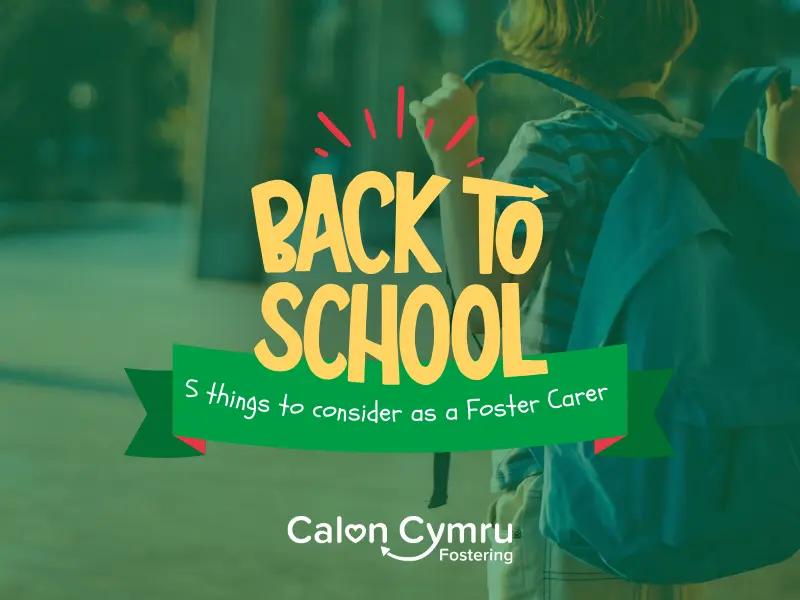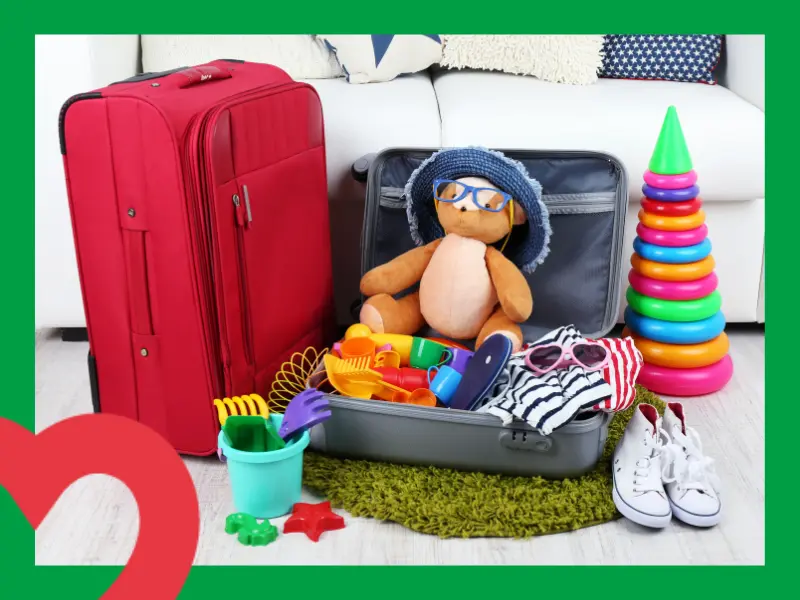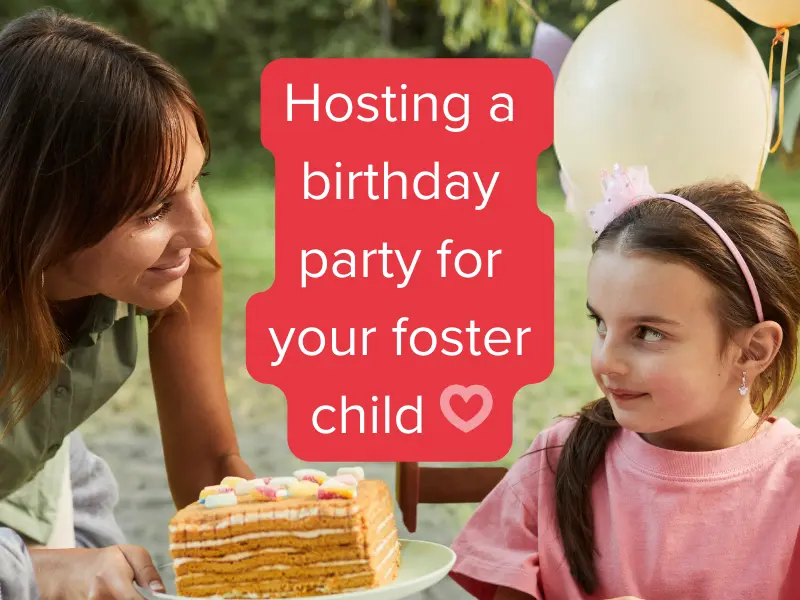5 things to consider for ‘Back to School’ as a Foster Carer
Date published
28 August 2024
28 August 2024

It’s that time of year again, the summer holidays are drawing to a close and preparations are underway for the start of the new school year. This time of transition brings with it lots of changes and new experiences as children and young people head back to new classes, new teachers, new routines and even new schools.
For Children Looked After the start of a new school term and how they experience their education can sometimes look quite different. For new foster carers and foster carers with children who have recently joined them, there may be ways in which the new school year could alter to their previous or personal experiences.
Here is a little insight into some ways school can be different for Children Looked After and how you can and will be involved.
Sometimes, children in foster care may struggle with the everyday routine of school due to their past experiences. Many have had unsettled school lives, whether due to neglect, regularly missing school, or even being the main caregivers at home. When these children join a foster family, they face changes, often beyond their control, which can make it challenging to adapt to a full-time school schedule immediately.
To support the children, you may have to make reasonable allowances in their education plan. For those who have not had the most stable school life, full-time school can be overwhelming. In these cases, social workers and schools can work together to create a reduced timetable that suits the child’s specific needs. This might involve attending school for half days, a few days a week, or alternating days.
Foster carers play a crucial role in helping the child build a routine and feel safe in their new school environment. Over time, as the child becomes more comfortable, their school attendance can gradually increase, working towards full-time participation.
When a child enters foster care, it's often in their best interest to remain in their current school. This offers stability, allows them to maintain existing relationships with friends and teachers and provides a sense of normality. This is common in short-term foster care placements.
However, children may not always be placed with foster carers who live near their school and in these cases, foster carers are responsible for ensuring the child gets to and from school.
If a child has specific needs that make travel challenging, the local authority may arrange a school taxi. This service is only provided if certain criteria are met, and the decision is made by the local authority.
For more details, foster carers should consult their supervising social worker.
Disruption to education is common for Children Looked After and can leave them needing extra support to catch up. As a foster carer, you can play a key role in supporting their ongoing learning at home.
Reading and literacy skills can be easily nurtured at home. Reading with younger children builds their confidence and strengthens the bond between you and the child. For older children, reading can help them understand their feelings.
Numeracy skills can also be developed through everyday activities. Cooking together is a fun way to practice basic math, such as measuring ingredients, reading numbers on a scale, and telling the time. Even simple games like counting toys or sorting them by size and colour can make learning enjoyable.
By making learning a part of everyday routines and play, you can create a positive and supportive educational environment at home.
Preparing for a new school year can be an exciting but also stressful time, especially for children in foster care. Involving them in the planning process can make this transition smoother and help ease any anxiety they may feel.
Start by including them in back-to-school shopping. Let them choose their school supplies, bags and uniforms. This will help them feel accepted and trusted by showing you value their opinions and choices and will help them feel more connected to their new school experience.
Talking is very important in foster care relationships so try starting a conversation about any concerns or worries they might have. Whether it's about fitting in, making friends, or managing new routines, talking about these concerns can help put fears to one side and build their confidence. By actively involving foster children in preparations, you can help them to feel confident heading into the new school year.
They say it takes a village to raise a child and this couldn’t be truer than in the case of foster children. The team around the child is filled with professionals whose aim it is to support the child to lead a happy and successful life.
A big part of the professionals who contribute to this are school staff who are care givers to children for a large percentage of the day. To ensure that foster children have a positive and supportive return to school it is important to have open and regular communication between foster carers and school staff to allow everyone involved to understand the child's unique needs, challenges, and strengths, and to create an environment where the child can thrive.
Foster children have often experienced instability in their lives and education, which can affect how they perform and achieve in school. By keeping teachers and school staff informed about the child's history, current situation, and any specific requirements, foster carers can help the school to understand the child's needs and create an effective way to support them. This might include providing additional support, discussing ways to deal with behaviour or simply offering emotional support.
Social workers play a key role in this communication by helping to ensure that the child's educational needs are aligned with their care plan. Regular meetings, progress updates, and a shared understanding of goals can make a real difference in the child's school experience.
Ultimately, a strong partnership between foster carers, social workers, and educators helps foster children feel understood, supported, and more secure.
Remember for more support and advice around the specific needs of the children and young people in your care you can always reach out to your Supervising Social Worker.
Fostering insights
28 August 2024

At Calon Cymru, we firmly believe in the power of play for children, regardless of their background or experiences. Play is a universal language for children allowing them to relax, have fun, learn social skills and build relationships. On top of this, it can play a crucial role in communication, especially for children who have experienced trauma.

We are often asked if foster children can be taken on family holidays with their foster carers. The short answer to this is yes. Taking a foster child on holiday can be a rewarding and enriching experience for everyone involved. Although the process may not be as simple as it is for birth children, taking foster children on holiday is not uncommon.

Many challenges can be encountered when a new foster child moves into your home, but sometimes these challenges can result in the happiest experiences for you, your family, and your foster child. A foster child can join your family at any time and when a birthday is just around the corner this can potentially be difficult to discuss.
Get in touch today for a casual, friendly chat with our experienced foster advisors.
Contact us
